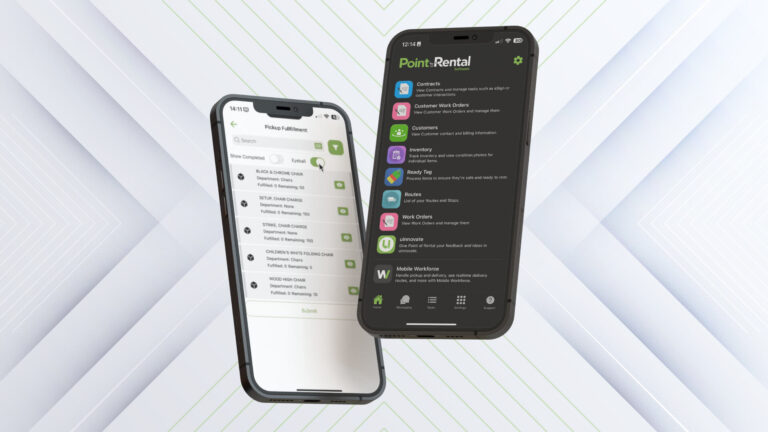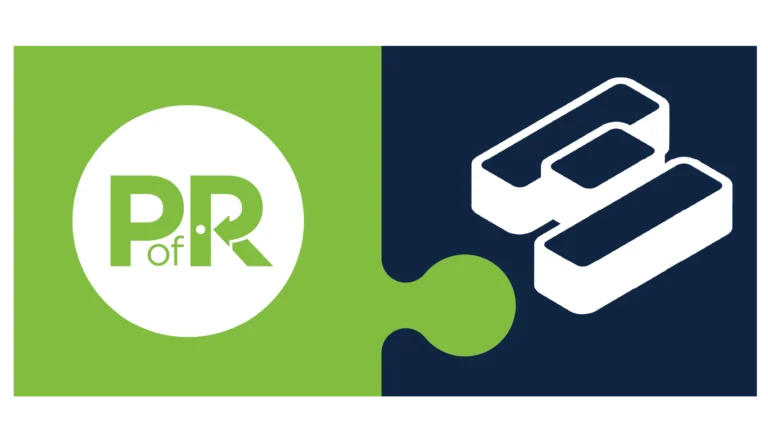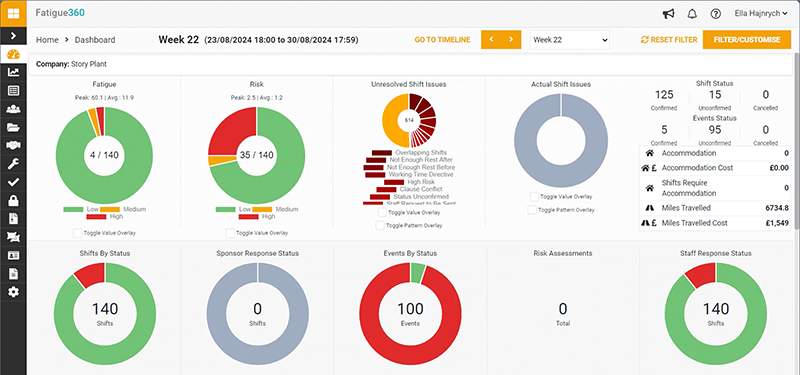Fatigued people make mistakes.
And in the plant, heavy equipment, and rail industries, mistakes made by fatigued operators can have life-changing (or ending) effects.
Story Contracting has earned a reputation for outstanding health and safety practices throughout England and Scotland, even in the rail industry, where health and safety isn’t just a goal, it’s a legal requirement.
Three Takeaways:
• Fatigue360 is the tool that works best for Story
• It integrates with Syrinx, their hire management software
• The integration benefits operators and resource planners
“We work with Network Rail and a few other organisations, who work in highly regulated environments that require us to make sure that all of the people are well-rested and therefore less likely to any errors on site,” said Nigel Salisbury, Story’s IT&S Director.“All conscientious businesses have a duty of care to ensure, regardless of the project or client that our people are well looked after, and not breaking any fatigue rules.”
By proactively managing fatigue, Story is not only protecting their team, but they’re optimising operations for better outcomes and setting a high standard for the industry.
Here’s how Story Contracting exceeds minimum expectations to protect their team and optimise their operations, creating better outcomes and setting a high standard for the industry.
Finding the right fatigue management tool
Because Story serve so many different industries, they’d actually been using a couple of different fatigue-management tools for years in different parts of the business.
Fatigue360’s feature-rich platform was popular due to its ability to set trigger points for activities which put people at risk of fatigued work. It allows business operations to plan and manage not only working hours, but also the travel and rest periods around work shifts – valuable for Story Contracting as their service region is so large that travel time can eat up a significant portion of the day.
Even better, it not only highlights shifts that run afoul of the rules, it explains which issues are causing the conflict – too long a shift, insufficient rest time between shifts, etc.
All in all, the software allows them to manage their team in a way that prevents fatigue before it sets in.
But the biggest value they found with Fatigue360 – the reason they decided to expand its use to the rest of the organisation – was in its ability to integrate with Syrinx via Syrinx’s API.
Integration with Syrinx: Two powerful tools working together
Story Contracting has also been using Syrinx since 2020 to manage their hire operations.
Its robust hire management feature set allows them to manage their inventory, staff, contracts, and virtually everything else associated with their business, so it’s a central hub for their data. Operators are assigned to projects within Syrinx, but without an integration, every job needs to be input again into Fatigue360 to assess potential conflicts and resolve them.
As a business spanning Great Britain, they have hundreds of jobs going on a given day, which means hours spent re-entering data. Worse, double-entering data provides twice as many opportunities for errors, too.
When Syrinx added a publicly-available API, Story worked with Fatigue360 to integrate operatives, sites, hire contracts and shifts with Syrinx.
“What’s been really great is the API that Syrinx have built – the development team have plugged straight into it. The documentation that came with the API is the best they have seen,” Nigel said.
This simple integration saved hours of resource planning time each week, ensuring the planning team wouldn’t run into fatigue problems themselves.
A bright future with better resource planning
With Syrinx and Fatigue360 integrated, contract and operator shift data is pulled into Fatigue360, which flags any potential issues. In addition, the system highlights shifts with potential issues, and planners can immediately take action – providing lodging, re-assigning workers, or conducting risk assessments.
When that action is taken, it updates the hire contract information back in Syrinx, so the right person is assigned to the job.
With a little extra work, Story brings in actual shift information from Syrinx, too, ensuring that fatigue management reports are as accurate as possible – if someone worked 10 hours on a project they’d been assigned 8 hours, for example, Fatigue360’s calculations are updated to reflect the effect on future shifts.
“I’ve created a little custom report in Syrinx that pulls out all the details,” said Story’s business systems analyst Ella Hajnrych. “We can just fill in the spreadsheet and upload it straight to Fatigue360, and that will save about half a day for our resource planners.”
All in all, bringing these systems together has brought immediate practical benefits, simplifying compliance with legal standards and enhancing Story’s ability to safeguard its workers.
With Syrinx’s API facilitating a seamless data flow from Fatigue360, Story Contracting sets a powerful example of how targeted technology integration can help companies meet both legal requirements and ethical obligations towards their employees.
By proactively managing fatigue, Story Contracting is not only protecting their team but also optimizing their operations for better outcomes and setting a high standard for the industry.
























































